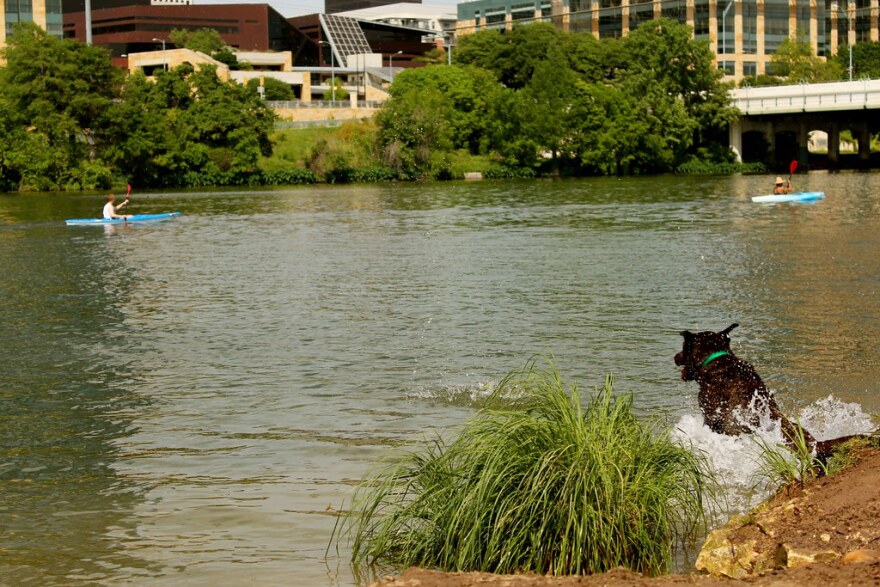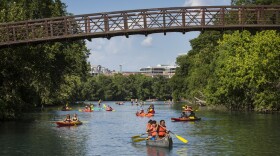Updated on Aug. 7 at 3:58 p.m.: Assistant City Manager Rey Arellano said Wednesday that Red Bud Isle would be closed to the public until further notice.
"The algae is especially prevalent near Red Bud Isle," he said, "with up to 40 percent of the water surface in that area covered."
He stressed there is nothing wrong with the drinking water.
The city expects preliminary results Friday from tests to see whether the algae is dangerous. Full results are expected Monday.

Our original post continues:
The City of Austin is warning people to keep pets out of Lady Bird Lake while authorities test the water for the presence of harmful algae. Two dogs died recently after swimming in the lake, though officials cannot confirm the causes of death.
City scientists found clumps of algae rising to the surface from the bottom of the lake Sunday. Preliminary tests suggested it’s a type of blue-green algae that can release a neurotoxin harmful to both pets and people if enough water or algae is ingested.
There have been blue-green algae blooms in Austin before, but officials said they have never released the neurotoxins. Scientists will have results early next week on whether that toxin is currently present in the water.
The city said it’s still illegal for people to swim in the lake, so exposure should be limited. People on the lake for other activities should avoid ingesting water or coming into contact with the algae.
The current algae bloom is covering up to 40 percent of the water near Red Bud Isle, the city said. It’s accumulating on shorelines and in areas with low water flow.
Jennifer Olohan of Animal Services Office said if dogs do get in the water, owners should bathe them immediately to prevent them from ingesting any algae.
If your pet has been in the lake, the city advises taking it to the vet if you observe any of the following symptoms:
- excessive drooling, vomiting or diarrhea
- foaming at the mouth
- jaundice
- blood in urine or dark urine
- stumbling
- loss of appetite
- sensitivity to light
- abdominal tenderness
- progression of muscle twitches
- respiratory paralysis
The lake is not used by Austin Water as a drinking water source. Lake Austin and Lake Travis are regularly tested for algae levels, and the department has not seen anything to be concerned about for drinking water.




